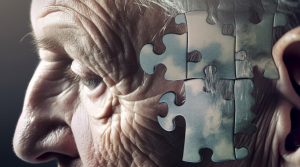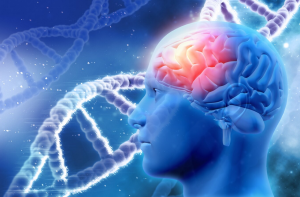Alzheimer’s disease: a phrase that conjures images of forgotten names, lost memories, and the struggle to hold on to the fragments of an identity being inexorably eroded. It’s a condition that affects not just the individual but ripples out to touch families and communities.
Opening the door to a room of understanding about Alzheimer’s, shining a light on the shadowed corners where questions linger about symptoms and care. Let’s walk through this together, unraveling the complexities and learning how best to support those on this challenging journey.
Living with Alzheimer’s is amidst a landscape that’s constantly shifting and where the familiar can quickly become unrecognizable. Thus, navigating this disease requires information—a conceptual map that makes the path forward clearer.
By exploring common queries and examining the various aspects of Alzheimer’s with a compassionate lens, we aim to offer not just answers but a beacon of hope and empowerment for those whose lives are intertwined with this formidable condition.

What is Alzheimer’s Disease
Contents
Imagine the mind as a library where every book is a memory, a skill, a piece of who you are. Now, picture that library as it slowly empties, shelves becoming bare as Alzheimer’s disease takes hold, erasing the volumes one by one. It’s a progressive condition that attacks the brain, causing a decline in memory, reasoning, and functional abilities—a far cry from the occasional memory lapses associated with normal aging.
It’s vital to recognize the difference between Alzheimer’s and the benign forgetfulness of elder years. Alzheimer’s interrupts life, creating disarray in the ability to manage day-to-day tasks, while normal aging might just mean occasionally misplacing your glasses. Understanding this distinction goes beyond semantics; it’s about knowing when to seek medical advice, how to plan for the future, and how to allocate resources and support.
Causes and Risk Factors
The roots of Alzheimer’s disease are buried deep, tangled in a web of unknowns and probabilities. Scientists are still decrypting the genetic and biological triggers, looking for patterns in the complex interplay of internal and external factors. In this mystery, there are clues: the development of particular proteins in the brain can signal the onset of Alzheimer’s well before the first signs of memory loss appear.

The dice of genetics can roll for or against us, with certain genes like APOE-e4 increasing the risk of developing Alzheimer’s. However, genes aren’t the only players in this game. Lifestyle factors—how active we are, the diet we follow, our mental engagement—all these and more can influence the likelihood of encountering Alzheimer’s. The quest for knowledge continues across research laboratories worldwide, with hope that each discovery brings us a step closer to prevention and cure.
Symptoms and Diagnosis
The onset of Alzheimer’s can be stealthy, with its first whisperings manifesting in subtle lapses: misplaced thoughts, evaporating conversations, and the gentle retreat of once vivid recollections. As if a fog descends, these symptoms quietly accumulate until the impact on daily life becomes too glaring to ignore.
Diagnosis is an art as much as a science—a thoughtful consideration of symptoms, history, and tests to illuminate the true cause of the cognitive shadows. Physicians employ a mix of narrative medicine, listening to the patient’s story, alongside state-of-the-art scans and assessments to differentiate Alzheimer’s from other dementias. It’s detective work that demands sensitivity and thoroughness, providing clarity for the road ahead.
Treatment and Management for Alzheimer’s
While the search for a cure continues, managing Alzheimer’s revolves around improving the quality of life for those affected. Medications offer some solace, alleviating symptoms and slowing progression in some cases, but they’re part of a broader tapestry. Lifestyle interventions, emotional support, and adaptations to the environment are foundational pillars in the battle against the disease’s ravages.
Strategies for managing Alzheimer’s go beyond simply dispensing pills. Creating a stable and supportive ecosystem where routines are maintained and safety is paramount can vastly elevate the day-to-day existence of someone living with Alzheimer’s. The relentless work of researchers to forge new treatments holds promise, nurturing the hope that one day we will have the means to halt, or even reverse, Alzheimer’s relentless march.
Care Options for Alzheimer’s Patients
As Alzheimer’s unfolds, the care it demands evolves, inviting a delicate balancing act between the autonomy of the person and the level of support they require. Some families choose to adapt their homes, creating a sanctuary that maintains a semblance of normalcy with necessary tweaks to manage the disease’s complexities.

When Alzheimer’s progresses, the transition to assisted living or a nursing home becomes a beacon of consideration, especially when round-the-clock care becomes a necessity. The decision about care isn’t straightforward—it’s a mosaic of preferences, practicalities, and anticipation of future needs. Exploring and understanding the breadth of Alzheimer’s care options lays the groundwork for a path that is as comfortable and compassionate as possible for those who must walk it.

